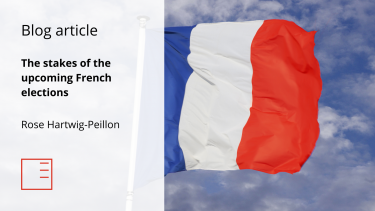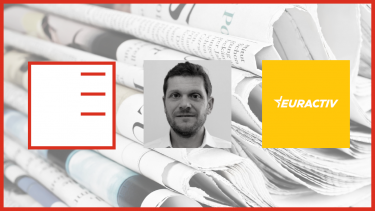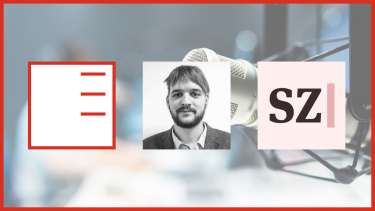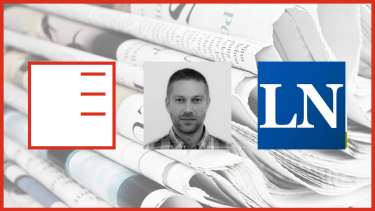Český rozhlas Radiožurnál: New migration politics of European Union
In matters of migration and internal affairs, voting in the EU is made by a qualified majority. However, representatives of Hungary and Poland are in favor of a unanimous decision. For Radiožurnál, our senior researcher Vít Havelka commented on the issues of the new EU migration policy.
Show more
POLICY PAPER | QMV in CFSP: Impending necessity or resurfacing utopia?
Miroslava Pisklová writes about a discussion on potential broadening of the qualified majority voting (QMV) system to more of the remaining policy areas in the Council of the EU in which it is not yet used, namely the EU´s Common Foreign and Security Policy (CFSP) that has recently gained momentum. This publication aims to analyse the advantages and disadvantages of introduction of the QMV in CFSP of the EU with a focus on the potential impact on smaller member states.
Show moreSeznamzpravy.cz: Comment: Ukraine in the EU? The biggest risk is empty promises
Our Research Fellow Jana Juzova commented on Ukraine's EU integration. Ukraine's economic level and lack of progress in democratic reforms, among other factors, complicate the EU's enlargement to include Ukraine. Accession would affect the flow of money redistributed from European funds, and Ukraine's membership would also have an impact on the EU Council's voting deliberations and the number of MEP seats.
Show moreBLOG: The stakes of the upcoming French elections
Rose Hartwig-Peillon writes in her blog about the upcoming French elections. How does the war in Ukraine affect the French presidential election, is Macron already the clear winner of the election or is it not a certainty? Is there a lack of a proper national debate in France?
Show more PDF
MINILATERAL COOPERATION IN THE EU: Internal Cohesion, Group Dynamics, and Voting Behaviour of Selected State Blocks
Our research fellow Vít Havelka contributed to the publication "MINILATERAL COOPERATION IN THE EU: Internal Cohesion, Group Dynamics, and Voting Behaviour of Selected State Blocks", published by the Institute for Foreign Affairs and Trade. He is the author of a chapter on the Visegrad Group.
Show more
EURACTIV: Babis’ defeat will weaken the link between Prague and Budapest
Our director Zdeněk Beránek spoke about the relations between Czech Prime Minister Andrej Babiš and his Hungarian counterpart Victor Orbán. Both are harsh critics of the EU institutions. However, the defeat of Babiš in recent parliamentary elections could hurt relations between the capitals.
Show more
Seznam Zprávy: The end of the myth of the "bad" EU. It rarely happens that the Czech Republic is outvoted
Our research fellow Vít Havelka commented for Seznam Zprávy on the results of a study on voting in the Council of the EU, which focused on cooperation in voting by individual member states within various groupings such as the Visegrad Four, Benelux and others.
Show more
Lidovky.cz: Pirate sailing into the EU ripples domestic waters. Politicians beat their proposal, and the coalition partner does not agree
The director of our institute, Vladimír Bartovic, spoke in favour of the Lidovky.cz website in support of the majority voting system in the Council of the European Union, to which the Pirate Party supported. According to Bartovic, a majority vote would be possible at least on foreign policy issues.
Show moreIDM: Brexit – A mess in the institutional EU Framework?
Our research fellow Danielle Piatkiewicz was a guest on the IDM Vienna podcast. The main topic of the podcast, which focuses on the Central Europe, was Brexit and the EU institutional framework.
Show moreThe progressing integration of the EU in security affairs: European Peace Facility
In his blog post, our intern Vojtěch Freitag discusses the progressing integration of the EU in security affairs: European Peace Facility.
Show more
Staroměstské náměstí 4/1
Prague 1 - Staré Město
110 00
tel.: +420 212 246 552
email: europeum@europeum.org
https://www.europeum.org









